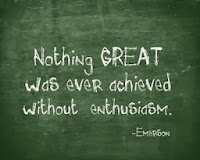Today is Martin Luther King, Jr.'s birthday. In the US, it is a day to celebrate his life and
accomplishments and to acknowledge the importance of inclusion and the civil rights movement. It has also become a day of service and an opportunity to encourage people to get involved in their communities. Many of King's inspirational speeches have been reduced to memorable quotes. Among them are some of my favorites:- Life's most persistent and urgent question is, 'What are you doing for others?'
- Darkness cannot drive out darkness; only light can do that. Hate cannot drive out hate; only love can do that.
- The time is always right to do what is right.
- Our lives begin to end the day we become silent about things that matter.
This year, I've added another to my list of favorites. For me, it explains why we get involved in our community by joining with others in a service club. King said,
"Everyone can be great because anybody can serve. You don't have to have a college degree to serve. You don't have to make your subject and verb agree to serve...You only need a heart full of grace. A soul generated by love."
Service above self sets the tone for all I strive to accomplish as a club, district and international leader for Optimist International. It is my hope to inspire others to organize and make a positive impact on their communities by analyzing needs and making plans to satisfy those needs. As citizens, it is our responsibility to make our communities better.
In his farewell address to the nation, US President Barack Obama expressed the same idea. He spoke of the most important office in a democracy: Citizen. He said,
"It falls to each of us to be those those anxious, jealous guardians of our democracy; to embrace the joyous task we've been given to continually try to improve this great nation of ours. Because for all our outward differences, we, in fact, all share the same proud title, the most important office in a democracy: Citizen. Citizen.
So, you see, that's what our democracy demands. It needs you. Not just when there's an election, not just when your own narrow interest is at stake, but over the full span of a lifetime. If you're tired of arguing with strangers on the Internet, try talking with one of them in real life. If something needs fixing, then lace up your shoes and do some organizing. If you're disappointed by your elected officials, grab a clipboard, get some signatures, and run for office yourself. Show up. Dive in. Stay at it.
Sometimes you'll win. Sometimes you'll lose. Presuming a reservoir of goodness in other people, that can be a risk, and there will be times when the process will disappoint you. But for those of us fortunate enough to have been a part of this work, and to see it up close, let me tell you, it can energize and inspire."
President Obama's message was, of course, aimed at the citizens of the United States. I believe his message, and Martin Luther King, Jr.'s message before him, apply to the world. We must be involved in our communities. We must take responsibility for our own well-being.We must help make the world better for others.
I recommend sharing that service with friends as part of an Optimist Club. Together we can. Together we will.
Click here to find an Optimist Club near you and join.
















